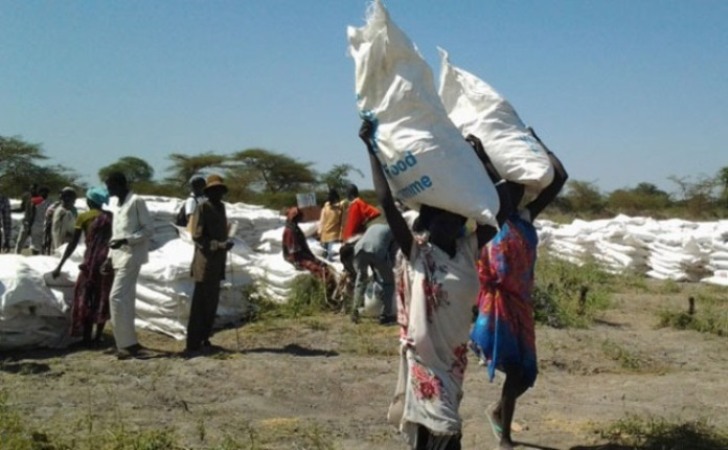WFP cuts food rations for refugees, IDPs in South Sudan
April 8, 2021 (JUBA) – The World Food Programme (WFP) on Thursday said it is cutting food rations for nearly 700,000 refugees and internally displaced people in South Sudan, citing the significant funding gaps.
The WFP Representative in South Sudan, Matthew Hollingworth said effective from April, refugees and internally displaced people will start receiving 50 per cent of a full ration, from 70 per cent.
“It is a very painful decision to take from the hungry to give to the starving, but this is the reality; because of the alarming rise of food insecurity in remote locations, WFP has to reduce the size of its rations in some communities, including refugees and internally displaced people, who are in a less precarious situation,” he explained.
The agency said its resources in South Sudan are stretched thin at a time when levels of food insecurity are at their highest in a decade and donors are grappling with the economic impact of COVID-19.
“We must try to save the lives of those likely to face famine during the lean season if they do not receive sufficient assistance. WFP simply does not have enough resources to provide full rations to all of those in South Sudan who rely on our assistance to survive,” said Hollingworth.
WFP said it urgently needs $125 million for its food assistance operations for the next six months to provide food in sufficient quantities, including larger food rations for refugees and the displaced.
Those affected reportedly include some 440,000 internally displaced people in Bentiu, Bor, Juba, Malakal, Mingkaman and Wau as well as nearly 260,000 refugees from the Democratic Republic of the Congo, the Central African Republic, Ethiopia and Sudan, who rely on WFP assistance to meet most of their food needs.
The situation remains dire across the country as almost 7 million people or 60 per cent of the population are struggling to find enough food each day, aid agencies say.
South Sudan has been struggling to recover from five years of a civil war that killed almost 400,000 people, according to reports. A coalition government formed in February last year between President Salva Kiir and opposition leader Riek Machar is implementing a revitalized peace agreement that is behind schedule, while deadly violence continues in parts of the country.
(ST)

